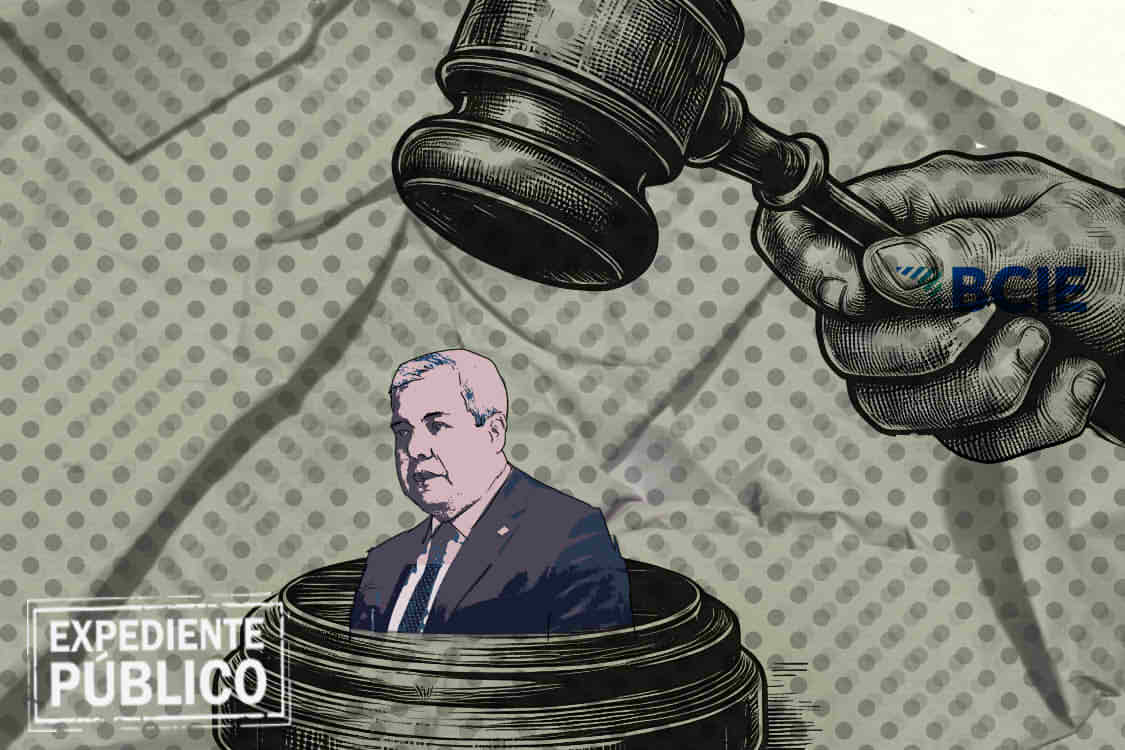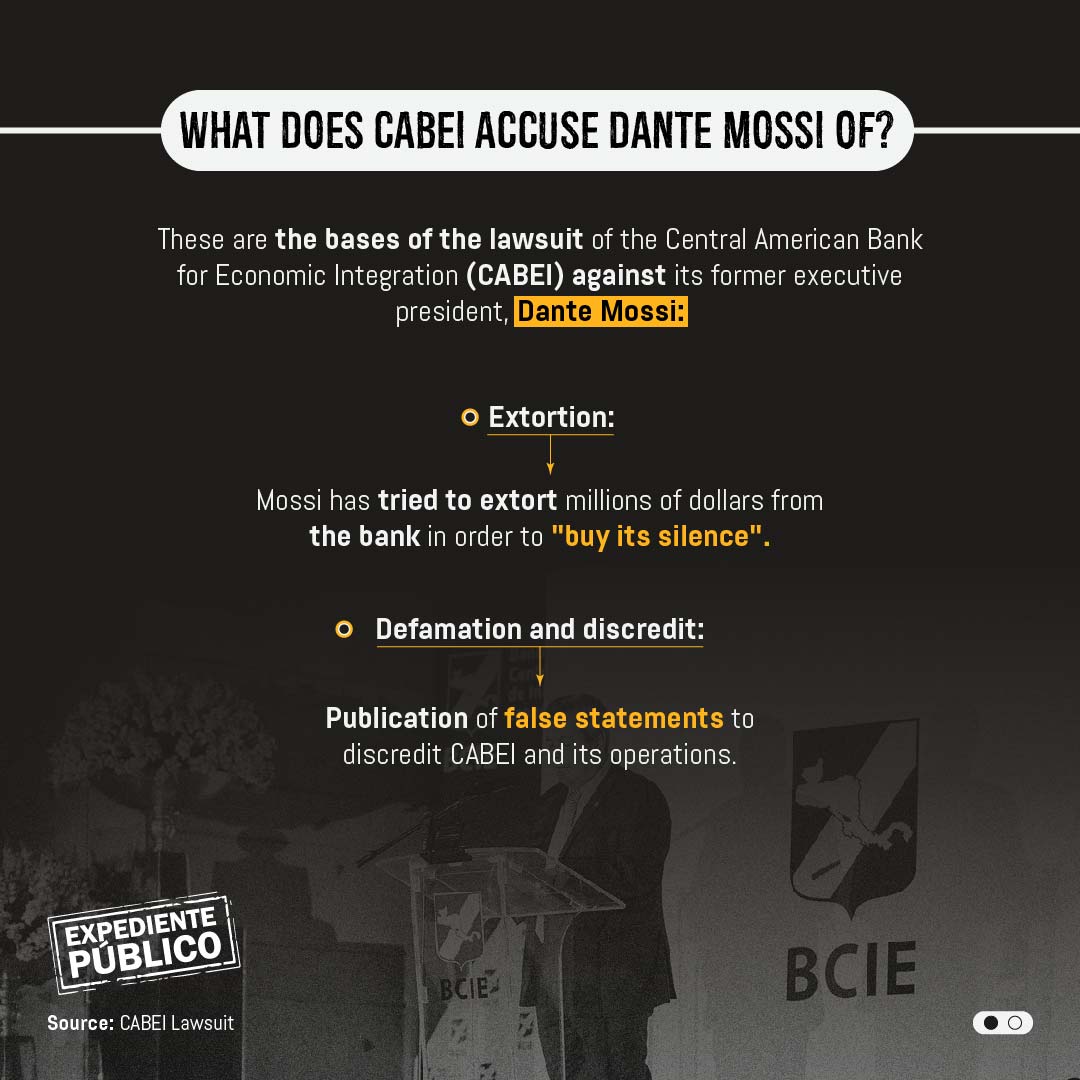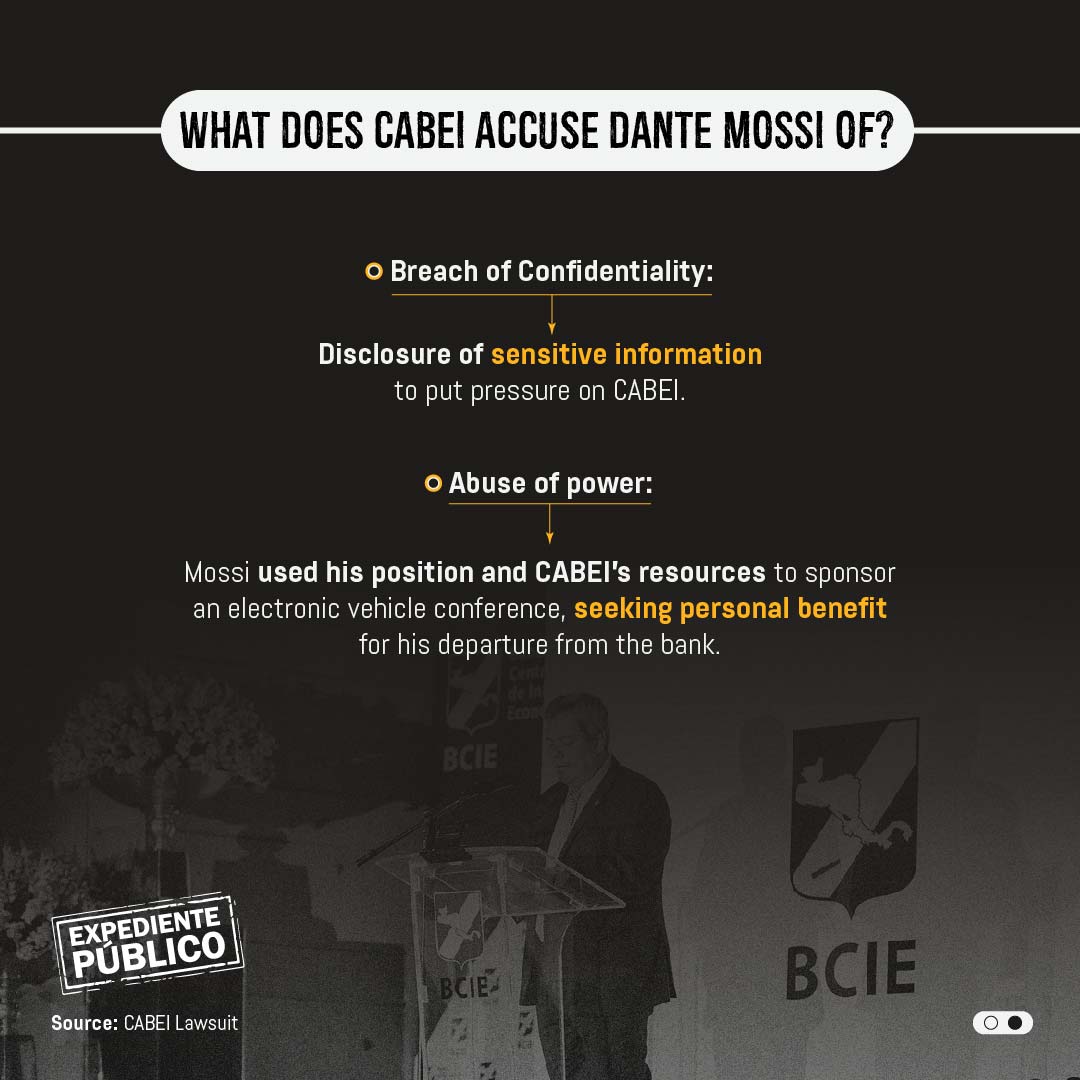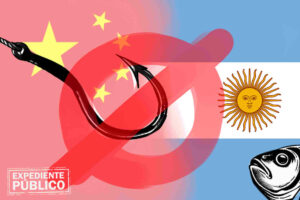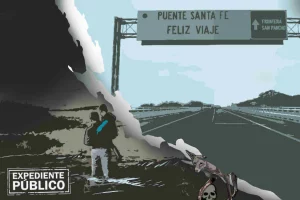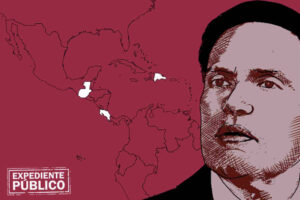* Dante Mossi calls CABEI’s lawsuit “frivolous,” but is preparing to face charges of extortion and defamation.
** The former president of CABEI, also accused of fraudulent activities and corruption, is demanding USD2.5 million from the bank for alleged damage to his reputation.
Sharon Ardon / Expediente Público
Dante Mossi was accused of orchestrating a scheme of extortion, defamation and discrediting against the Central American Bank for Economic Integration (CABEI), which filed a civil lawsuit in Washington DC, United States.
The former president of CABEI, between 2018 and 2023, retaliated after not renewing his position at the institution, for trying to “damage his reputation and his relationship with his business partners,” according to the lawsuit obtained by Expediente Público.
The new administration of the agency, chaired by Gisela Sánchez, went to a U.S. court under the Racketeering and Corrupt Organizations Act (RICO), as announced on September 5, 2024.
Subscribe to the Expediente Público newsletter and receive more information
According to CABEI’s statement, the civil lawsuit against Mossi includes “breach of fiduciary duty, market manipulation, unlawful interference and breach of contract.”
Regarding the legal action against him, Mossi assured Expediente Público that being before the Federal Court in Washington is “frivolous” since he is not a resident of the United States, but of Honduras. However, he is looking for an attorney to defend himself.
You may be interested in: Dante Mossi: I have a very clear conscience
CABEI: Mossi discredits for revenge
CABEI points out that what this civil lawsuit seeks is to defend itself from Mossi’s “extortion” scheme. At the same time, it aims to protect its interests and stop the illegal defamation of the former official of the financial institution.
Expediente Público accessed the lawsuit Central American Bank for Economic Integration v. Dante Mossi, with case number 1:24-cv-02544 in the Court of the District of Columbia in the United States.
The multilateral alleges that there is an “extortion scheme that the former executive president of the bank has carried out in retaliation for CABEI’s ordinary and good faith decision not to reappoint that executive president for a second term.”
And as a consequence of this action, Mossi “has undertaken an illegal and corrupt crusade against CABEI, defaming and discrediting it, trying to damage its reputation and its relationship with its business partners.”
In May 2023, CABEI’s Board of Governors voted unanimously not to renew Mossi’s five-year term, which “angered Mossi,” the introduction of the case argues.
In context: CABEI is looking for Dante Mossi’s replacement
“Extortion and smear campaign”
In addition, CABEI points out that its former president participates in a pattern of false and misleading statements specifically aimed at CABEI’s business partners in the U.S. and the investing public in order to force CABEI to buy their silence.
As part of this scheme, the case reads that Mossi repeatedly threatened to file—and did—sham legal proceedings against CABEI, demanding millions of dollars in damages for which he “has no standing.”
“Mossi’s message is clear. His attacks on the Bank will not stop until he pays him a large undeserved sum,” the lawsuit stresses.
You can also read: Dante Mossi will inherit bureaucratic burden and excessive expenses at CABEI
Lawsuit for USD2.5 million and muzzle
In an interview with Expediente Público, Mossi said that he did indeed sue CABEI for a withholding of $6,000 from his compensation.
Mossi also said that when he left CABEI, he was given a confidentiality agreement that he considers to be “a muzzle.”
“What it said was that I could not give an interview, write a book, have social networks, without the prior permission of the bank,” he revealed in the interview published on September 8 by Expediente Público.
After a new consultation, after learning of the bank’s lawsuit, Mossi acknowledged to Expediente Público that the legal action he filed against CABEI before the Central American Court of Justice (CCJ) demands 2.5 million dollars.
The Court admitted the appeal, and what Mossi seeks is to compensate for alleged damages, because “CABEI has sought to stain my reputation to block me from future jobs.”
The former president explained that, after his departure from the bank, CABEI conditioned the payment of his benefits to the signing of a new confidentiality agreement, which he rejected and made public.
“The next day they paid, except for the $6,000,” he told Expediente Público.
Mutual accusations
In fact, Mossi publicly criticizes the new administration of Sánchez, to Expediente Público, he points out a lack of transparency.
“The financial terms of the financing, particularly in the Dominican Republic and Costa Rica, and reaching the extreme in Costa Rica that asked not to publish anything of the approval of a loan of $400 million,” he said.
Mossi explained that, since March 2023, CABEI began to restrict the publication of information through a communications committee and this began to limit public information.
Likewise, in the lawsuit, CABEI claims that Mossi used its position and resources from the bank to organize an electric vehicle conference in Washington D.C. Through which, he established relationships with a New Jersey company called “Centro.”
Before leaving CABEI, Mossi used his discretion to get the bank to buy two electric vehicles from Centro “without there being a clear commercial reason.”
Shortly after, Mossi founded a new company “through a deal he negotiated while he was CABEI’s executive president and trustee,” the lawsuit states.
Mossi gave an exclusive interview to Expediente Público in which he referred to his electric vehicle business.
“From the Central American Bank I promoted electric mobility a lot, because it is really in the part where we are not making much progress,” he said.
In summary, the bank’s lawsuit describes that “Mossi participated in a pattern of organized crime in the operation of this company, and these predetermined acts have a single objective: to enrich himself at the expense of CABEI and to its detriment.”
“The long arm of the law”
Therefore, CABEI determines that Mossi violated the RICO law, the Market Manipulation law based on his alleged illicit behavior while in office.
In view of this, the Mexican lawyer and expert in international litigation, Samuel González explained to Expediente Público that there are two types of actions under the RICO law, one criminal and the other civil.
“The civilian RICO can be done by anyone who proves that they are fighting the mafia or a criminal group,” Gonzalez said. In addition, he pointed out that this type of lawsuit allows the sanction to be three times greater than the proven damage.
What proceeds with the lawsuit?
Faced with the possibility that Mossi will file a motion to challenge the jurisdiction of the lawsuit in the U.S., the expert lawyer said that this would generate a series of litigations around jurisdiction.
“If Mr. Mossi has moved, as the lawsuit says, to talk to banks in the United States so that they stop providing support to the bank and is intervening with businesses in the United States, that can give jurisdiction to the United States,” Gonzales said.
The lawyer explained that, in the U.S., particularly in New York and Texas, there is the concept of the “long arm of the law,” in which verifying that funds have been transferred from the U.S. to a Honduran bank, such as an account that receives lempiras from U.S. dollars, may be enough to establish jurisdiction.
Also: Dante Mossi endangers CABEI’s reputation by financing the Ortega regime
Nicaragua’s disagreement
Bruno Gallardo, current Minister of Finance and governor of Nicaragua to CABEI, sent a letter to Ana Gisela Sánchez Moroto, executive president of the bank, in which he states that the Nicaraguan government does not support the lawsuit filed by his administration against Dante Mossi.
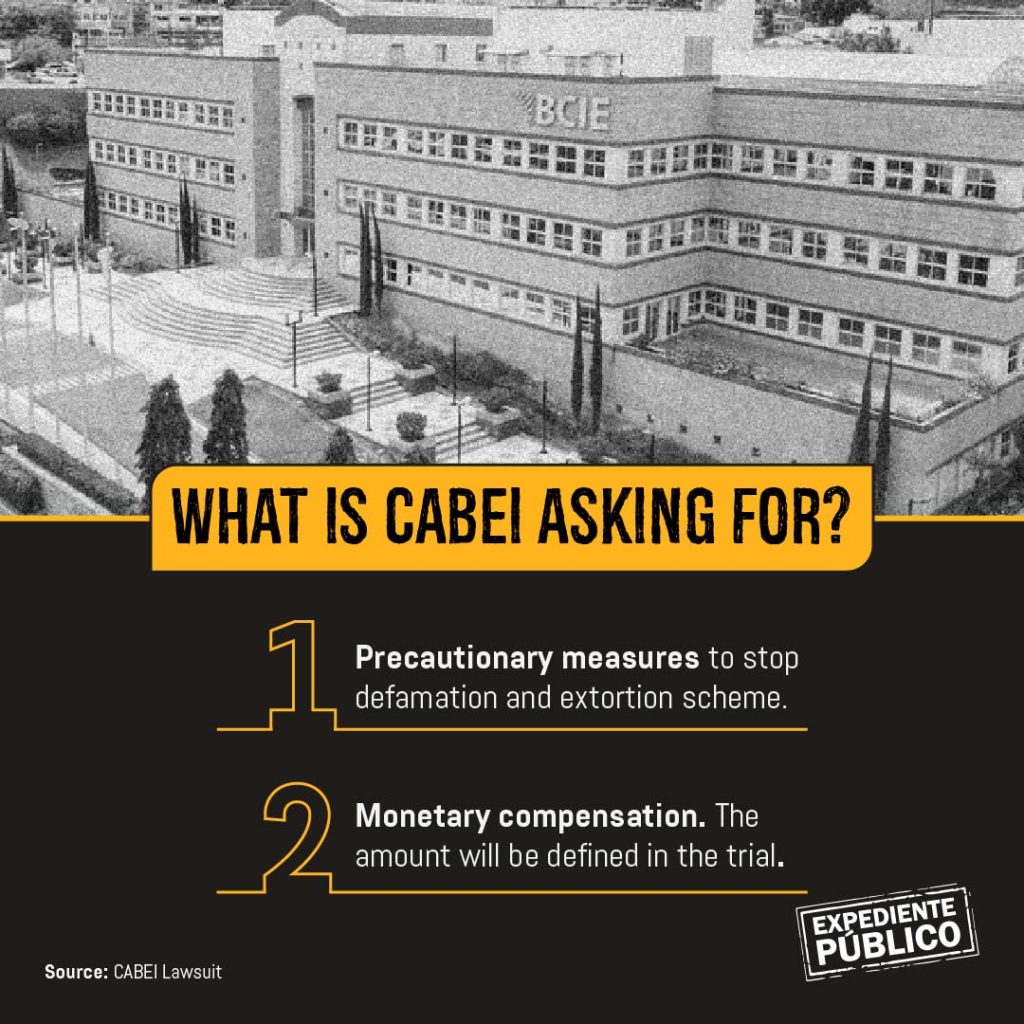
“We express that the Government of the Republic of Nicaragua does not support and distances itself from this demand,” Gallardo wrote.
The regime’s public reaction is not surprising, given that during Mossi’s presidency, Nicaragua was one of the main beneficiaries of CABEI loans, despite serious allegations of human rights violations and repression.
“We believe that CABEI should focus on financing countries, avoiding media actions to the detriment of their image and that they may be subject to political manipulation,” reads the statement from Daniel Ortega’s regime.
Mossi, through his X account (formerly Twitter), thanked Nicaragua for its support and at the same time showed surprise at CABEI’s lawsuit against him.

